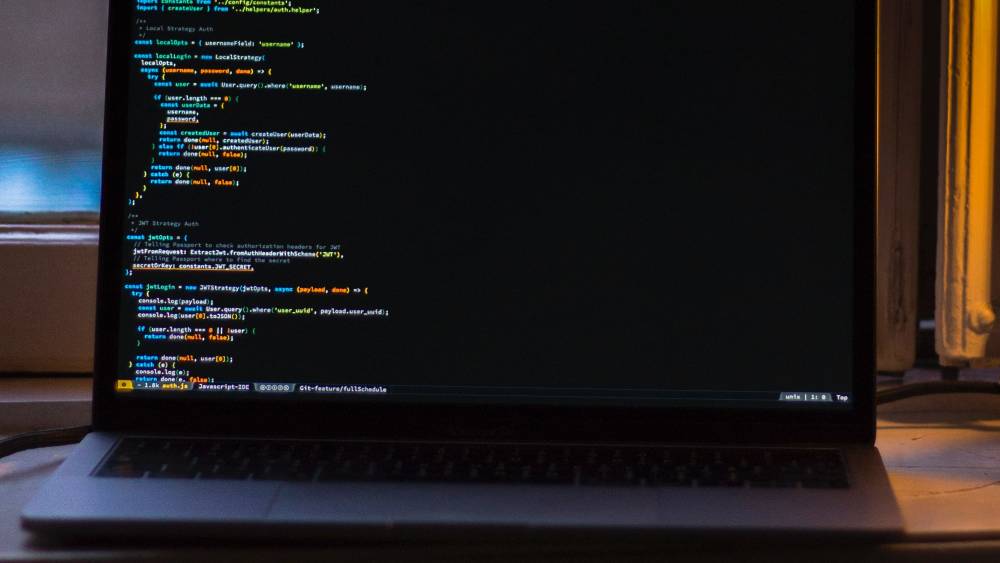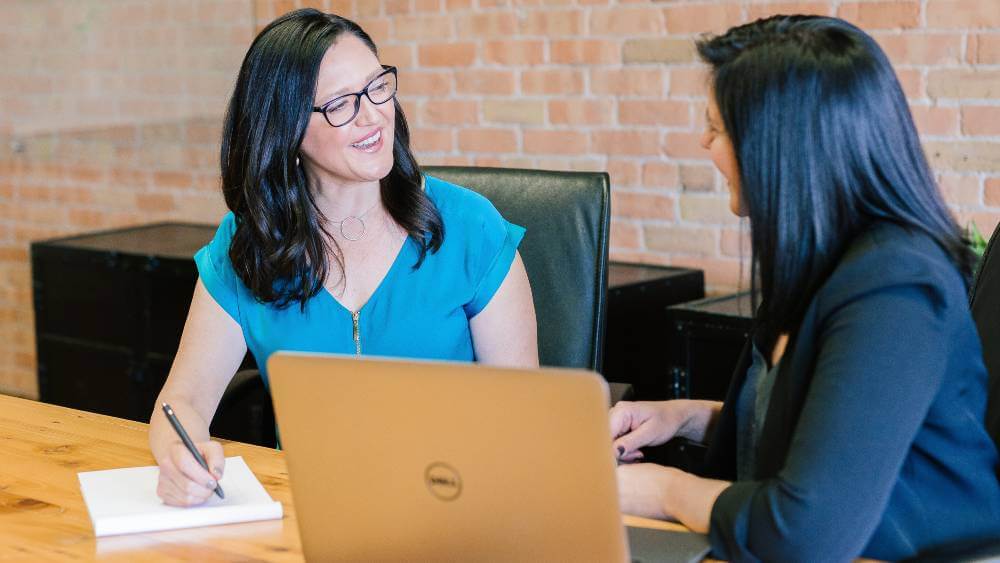Welcome to the must-read article on Back-End Developer Interview Questions!
In this article, we will be detailing the common interview questions and answers to expect in an interview, questions you can ask of the interviewer, and how to prepare for one.
Reading this article will prepare you adequately for your next Back-End Developer Interview.
We will cover the following:
- Common interview questions and answers
- What questions can you ask the interviewer/panel?
- How to prepare for an interview?
Enjoy the read!
Introduction

Back-End Development is the engine that drives the web—which controls end-user digital connections and links the internet to databases.
Back-End Developers are highly sought-after workers whose work is crucial to any business or sector that depends on computers and the internet.
They should be knowledgeable in development languages, databases, caches, servers, and APIs.
The application is created server-side by the Back-End Developer.

They are responsible for the software engineering involved in setting up and testing the client-server system.
To create a usable software product, they frequently collaborate with project managers, Front-End Developers, and other types of experts.
Although Back-End Developers don’t work directly on the user interface (UI), the total user experience of software ultimately benefits from their efforts.
The best website back ends perform so well that the effort is often overlooked.
Remaining unnoticed is the reverse of what Back-End Developers want while trying to get hired for a full-time position.
Although every business is different, many human resource managers and C-suite executives employ similar questions when searching for a Back-End Developer to hire.
They pose difficult questions to identify your talents and flaws and judge whether you belong on the team.
At the end of the interview session, they want to choose a candidate with a deep understanding of various Back-End Development elements such as microservices architecture, programming languages, database systems such as ACID (Atomicity, Consistency, Isolation, and Durability), etc.
You should review programming fundamentals and get some practice responding to frequently requested interview questions before your interview for a career as a Back-End Developer.
Consider your responses to the following questions ahead of time to feel more at ease and certain.
The most typical Back-End Developer interview questions are covered in this post, along with the proper way to approach each one
Common Interview Questions and Answers

Regardless of whether you are a beginner, full-stack, or experienced Back-End Developer, there are some common interviewing questions you expect to be asked.
They usually revolve around technical skills, programming languages, and databases.
In addition to these three areas, interviewers may also ask about your experience with web services, scalability issues, and performance optimization.
They will also gauge one’s proficiency in cloud computing and familiarity with some commonly used cloud platforms, such as Amazon Web Services (AWS) and Microsoft Azure.
Being prepared to answer these questions will help you land the job.
What is the difference between software design and software architecture?
Every Back-End Developer knows that being asked about the difference between software design and software architecture in an interview is almost inevitable.
After all, these two concepts are closely related, and each one requires a unique set of skills.
It’s essential to answer this question confidently, as it will give the Interviewer a good sense of your level of experience and expertise.
So, what is the difference between them?
Software design is the process of planning and coding the software that will power a system, while software architecture focuses on the structure of that software.
What is your process for debugging?
This is a typical interview query, especially if the Back-End Developer hiring test does not involve a live coding test.
There is no such thing as a flawless Programmer or code anyplace.

Coding’s equivalent of proofreading is debugging.
In essence, a great Programmer must also be an excellent debugger.
When asking about this topic in an interview, Interviewers are seeking a candidate to mention the debugging tools they employ, their approach to troubleshooting, and the precise procedures they follow to resolve problems.
What is your favorite programming language? Please give us a reason for your choice.
This question strikes me as a “safe” opener regarding back-end engineers, especially more seasoned ones, as it is a straightforward approach to start a conversation.
You can discuss your passion for writing code using your favorite language here.
The best Developers can gush endlessly about the frameworks and languages they work with and fervently defend the merits of using PHP, Ruby, or Elixir instead of another language for a particular task.
While there are many different types of programming languages, some are more popular than others among Back-End Developers.
The most common languages include Java, CSS, PHP, Javascript, Python, HTML, SQL, Angular, Node.JS, OOP, ASP.Nert, .Net, and Ruby.
When asked about their favorite language, many Developers will prefer it. However, there is often no “correct” answer to this question.
It is simply a matter of personal preference.
What do you understand about NoSQL databases? Explain.
When interviewing for a position as a Back-End Developer, you may be asked about your understanding of NoSQL databases.
In your answer, you should explain what NoSQL databases are, how they differ from relational databases, and why they are often used for certain types of applications.
It would be best if you were also prepared to discuss NoSQL databases’ advantages and disadvantages.
Finally, if you have experience working with NoSQL databases, mention that in your answer.
An example of a suitable answer is: NoSQL databases are a type of database that does not use the traditional table structure of relational databases.
Instead, they use a variety of data models, including document, key-value, graph, and columnar.
NoSQL databases such as MongoDB and DynamoDB are often used for applications that require high performance and scalability, such as real-time analytics and gaming.
What is JavaScript? Why would you use JavaScript over other programming languages?
It is also used by Back-End Developers, though not as commonly.
Yet you must show off your knowledge of this programming language.
Back-End Developers typically use JavaScript for task automation, such as linting code or minifying files.
A suitable approach would be:

JavaScript is a programming language that is commonly used for Web Development.
It is easy to learn and has a wide range of applications.
For example, it can be used to create interactive web pages, validate user input, and create animations.
JavaScript is unique because it is an interpreted language, meaning it can be executed without being compiled first.
This makes it perfect for Web Development, as the code can be executed on the client-side without needing a server.
However, this also means that JavaScript code is not as fast as code written in other languages.
How would you find the most expensive queries in an application?
One of the most common technical questions asked of Back-End Developers is how they would find the most expensive queries in an application.
This question is often asked to gauge a candidate’s understanding of database optimization.
There are a few different ways to approach this problem.
One approach would be to use the EXPLAIN command in MySQL.
This command will show you the execution plan for a query, which can be helpful in identifying which parts of the question are taking the longest to execute.
Another approach would be to use a tool like New Relic to profile the performance of your application.
New Relic can help you identify which queries are taking the longest to execute and where bottlenecks are occurring in your code.
Whichever method you choose, it’s important to be able to explain your reasoning for why you believe that particular query is expensive.
What is the difference between a functional test and an acceptance test?
As a Back-End Developer, you will ensure that the software application meets all functional and acceptance criteria.
You may be asked to explain the difference between these two types of tests in an interview.
The development team typically conducts functional tests during the Software Development process.
They are used to test individual software components to ensure they meet all specified requirements.
On the other hand, acceptance tests are usually carried out by the customer or end-user.
They are used to confirm that the software application meets the required standards.
To answer this question effectively, it is vital to understand both types of tests.
Which sorting algorithm should you use and when?
Back-End Developers need to have a strong understanding of algorithms and data structures to succeed in their role.
As a result, sorting algorithms are often a key topic of discussion in Back-End Developer interviews.
This question is meant to gauge your problem-solving abilities and see how you think through a programming challenge.
When asked which sorting algorithm to use, it is crucial to consider the specific scenario and requirements.
For example, if you are working with a large amount of data, you will likely want to use an efficient algorithm in terms of time and space.

On the other hand, if the data is relatively small or known to be already sorted, you can use a simpler algorithm.
Overall, the goal is to choose the algorithm that is best suited for the specific situation.
Here are some standard sorting algorithms and their uses:
- Bubble sort: slowest algorithm but simplest to implement; works well for small amounts of data
- Selection sort: slightly faster than bubble sort; works well for data that is already somewhat sorted
- Insertion sort: fast for small amounts of data; works well for data that is already sorted
- Merge sort: one of the fastest algorithms; it works well for large amounts of data
Ultimately, knowing that there are many different sorting algorithms, the algorithm you use will depend on the specific data set you are working with.
Each algorithm has its strengths and weaknesses, so it’s essential to choose the right one for the task.
What would you consider your greatest weakness?
One question that you are likely to be asked in an interview for a Back-End Developer position is what your greatest weakness is.
While trying to avoid the question or give a generic answer can be tempting, this is not always the best approach.
Instead, it would help if you took the opportunity to use this question as a chance to show that you are aware of your weaknesses and are taking steps to improve.
The answer could vary from soft skills to collaborating with team members to scripting with a particular programming language.
By giving specific examples, you can show that you are self-aware and motivated to continue growing and learning in your career.
How do you handle criticism in the office?
If you can take constructive feedback and use it to improve your work, you’ll be an asset to any team.
On the other hand, if you’re defensive and react badly to criticism, it will reflect poorly on you and could damage your chances of advancement.
Your approach shows that you understand that the best way to handle criticism is to stay calm and listen carefully.
Further demonstrate that you can ask clarifying questions if you’re unsure what the person is trying to say, and then take some time to think about how you can improve your work based on the feedback.
They want to see a prospective employee who can accept criticism gracefully and use it to improve their work.
It will be your chance to put forward one of your greatest strengths as a Back-End Developer.
How do you handle stressful situations?
Back-End Developers are often under a lot of pressure to produce high-quality code that is bug-free and performs well with different operating systems and applications.
As a result, it is essential to have a suitable method for handling stress.
Hence, how you handle stressful situations is a common interview question.

How you answer this question can show if you can stay calm under pressure, manage stress well, and solve problems efficiently.
Your answer should demonstrate your ability to stay calm under pressure and maintain a positive attitude.
You might discuss a time when you had to manage a complex project or meet a tight deadline.
What are the contributors to a successful project?
Your answer should focus on teamwork, communication, and collaboration.
Emphasize your ability to work well with others and contribute to a positive team dynamic.
Ultimately, the goal is to demonstrate that you understand what it takes to work effectively as part of a team and that you have the skills and experience to contribute significantly to any project.

One of the sample answers is that a successful project requires the cooperation of many different contributors, each with unique skills and perspectives.
A Back-End Developer is one of the most important contributors to a project, as they are responsible for developing the server-side of an application.
Questions you can ask the interviewer/ panel

Asking questions during an interview can be a great way to show off your knowledge and chops as a Back-End Developer.
Follow-up questions give you a better understanding of the role and the company.
Here are some examples of questions you can ask:
- What type of projects will I be working on?
- What is the company’s development process like?
- Who will I be working with most closely?
- What are the company’s coding standards?
- What type of database do you use?
- How will my performance be measured?
- Can you tell me about a time when you had to solve a problematic coding problem?
- What are the most challenging aspects of the role?
- What are the career development opportunities available?
By asking these types of questions, you will better understand what the role entails and whether or not it is a good fit for you.
How to prepare for the interview

When preparing for your interview, consider the following:
- Do your research on the company and the job position – This might help you get an edge during the interview
- Practice and then practice again – By putting yourself in such a scenario, you can anticipate possible questions and stay ahead
- Be ready for information and ‘inappropriate’ queries – Some interviews may get personal and into private matters. Think about how you will circumvent them
- Dressing: Keep it formal but never casual – Your grooming should also be impeccable.
- Make sure you finish on a positive note – Make sure you have thanked the interviewer or the panel for their time
- Physical copies: Even in this age of the internet, always carry a copy of your resume – Your phone might hang – Avoid any embarrassment by quickly referring to your physical copy
Conclusion

You know what questions might be asked now that you’ve read over some of the crucial back-end interview questions, so you can prepare accordingly.
The back-end technical interview questions are only one section of the interview, which is typically conducted in segments.
Additionally, the applicants must be ready for inquiries regarding their interpersonal, teamwork, and other soft abilities.
The recruiters’ Back-End Developer must be a superb cultural fit for the business.
Making sure that everything you mention, from loose coupling to stack flowing or domain logic, is entirely understandable to the individual posing the question is your best approach.
All the best in your following interview!
FAQs

What is the role of a Back-End Developer?
A Back-End Developer is responsible for the server-side of a web application.
They are tasked with managing the data and logic that powers the app, as well as ensuring that the front-end (the client-side) interacts seamlessly with the back-end.
What questions should I ask at the end of the interview?
Follow-up questions at a job interview demonstrate your interest in the position and company.
Some questions you could ask include: What are the most challenging aspects of the role? What kind of technical environment will I be working in? What kinds of projects will I be working on?, etc
What is the recommended type of wear for an interview?
First impressions are critical.
Avoid wearing anything that is too casual; instead, opt for business casual attire, such as slacks and a button-down shirt.
In case of questions about what to wear, it is always best to err on the side of caution and dress more formally.
What key skills are recruiters looking for in a Back-End Developer?
Recruiters are looking for candidates with specific skill sets.
In addition to strong technical abilities, they want candidates who can solve problems quickly and effectively.
Additional skills recommended for Back-End Developers Git, Github, Character encoding, Machine Learning, Linux Command, SSH, Data Structures, etc.
What is the expected salary for a Back-End Developer?
Glassdoor reports that the average base pay for a Back-End Developer is $84,823 per year while Payscale.com reports a median salary of $85,000 per year.
However, more experienced Developers and those living in high-cost areas such as San Francisco or New York City earn higher salaries.
Do Back-End Developers use SQL?
While Back-End Developers do not need to use Structured Query Language (SQL) exclusively, it is a valuable skill to have.
Back-End Developers often use SQL to query and modify database data.
SQL is essential in creating stored procedures and triggers, hence automating various tasks within the database.
Which programming languages are commonly used by Back-End Developers?
As a Developer, you will be responsible for the server-side of web applications.
This means that you must be proficient in various programming languages, as each has its own strengths and weaknesses.
The most popular programming languages for Back-End Development are PHP, Ruby on Rails, Java, and Python.









